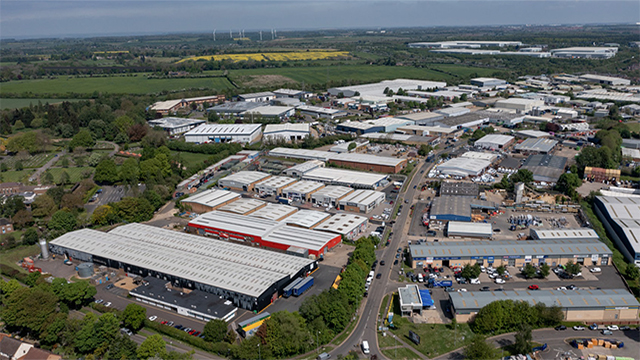Online auctions will be the new normal
Technology is changing the way we do business. Jeremy Green, director at Lambert Smith Hampton, gives his views on the changing market place.
The property sector is often considered to be behind other industries in its uptake of technology. However, one growing market is proving that the right combination of technology and expert human insight can bring buying and selling to a much wider audience – auctions.
By introducing state-of-the-art technology to speed up transactions and introduce new levels of engagement and transparency, the auction sector is inviting today’s tech savvy audience to take part.
Technology is changing the way we do business. Jeremy Green, director at Lambert Smith Hampton, gives his views on the changing market place.
The property sector is often considered to be behind other industries in its uptake of technology. However, one growing market is proving that the right combination of technology and expert human insight can bring buying and selling to a much wider audience – auctions.
By introducing state-of-the-art technology to speed up transactions and introduce new levels of engagement and transparency, the auction sector is inviting today’s tech savvy audience to take part.
Digital natives
Technology has created a generation of workers who think, work and play digitally. They have grown up surrounded by tech, communicating on social media platforms such as Facebook and Instagram. Our shopping habits have changed so much in the last decade and the high street is still to reinvent itself.
Other sectors are far cleverer about the use of data. Think about how Uber changed the taxi world, or how Twitter has hit breaking news
We now spend an entire day each week online, according to Ofcom’s recent report A Decade of Digital Dependency, which highlights that adults spend on average two hours and 48 minutes on their smartphone daily.
The traditional ballroom-style auction might seem worlds’ away from this digital way of life, but times are changing. The most significant piece of technology having an impact is the emergence of eBay-style selling platforms. We are pioneering this new way to sell and buy at Lambert Smith Hampton and there are multiple benefits.
Advantages to online
Firstly, online auctions deliver absolute certainty to buyers that, once they have pressed the button, the deal is done. In an economic world where nothing much is certain right now, that assurance is highly desirable.
Secondly, they are transparent and timely – all buyers and sellers are vetted thoroughly and bid in the open, with information updated instantly. This suits the new generations who live in an on-demand world where they can govern almost all aspects of their lives instantly through a smartphone app.
Thirdly, online auctions reach a far wider pool of potential bidders. The real estate industry today is more of a global playing field than ever before and despite political uncertainty – the shadow of Brexit looms – overseas investors remain keen to invest in UK property. Online auction platforms enable a bidder to get involved wherever they are.
Online auctions are particularly enabling for new entrants to the world of property, who might find the traditional ballroom style of auction sales intimidating. Whether a buyer is young, old, from the UK or from overseas, everyone is treated equally and registering can be a much less daunting process. We sell a diverse range of properties at auctions to a diverse range of buyers, which will only increase as online auctions grow and more buyers feel confident enough to take part.
Big data
Online selling platforms aside, there are now many technologies that speed up the property transaction process, particularly at auction. Online banking is now the preferred way that many of us manage our finances, while online vetting and credit check companies speed up approval processes.
Tools such as virtual viewing and 3D walk-throughs mean that people can get a much more accurate initial view of a property, which speeds up buying decisions and widens market reach.
Expert insights cannot be automated by a clever app, but they can be informed by data. Man and machine can provide a compelling partnership
One technology area yet to really impact the property sector is the use of data analysis tools. Lots of tech firms are gathering property data and creating apps to display information, from leasing and rent details to heating systems and bike store usage, but we are yet to see how this knowledge will fundamentally change the industry.
Other sectors are far cleverer about the use of data in decision-making. Think about how Uber changed the taxi world, or how Twitter has hit the way breaking news is communicated – or even how Amazon turns sales data into extremely well targeted adverts.
Looking to the future
Clever use of technology including big data and predictive analytics will indeed become a high priority for all property firms. At Lambert Smith Hampton, we are so confident that online is the future that we are moving away from ballroom auctions completely.
That’s not to say we believe that the human element will leave the process. Far from it – though technology might speed up processes and make transactions more transparent, it will always require teams on the ground to shed light on the nuances of each market.
We have 31 regional offices, full of local experts who are ready to provide instant and expert advice on value and marketability. Their insights cannot be automated by a clever app, but they can be informed by data gathered by technology. Together, man and machine can provide a compelling partnership.
We do expect the property sector, auctions included, to fundamentally change over the next few years as more technology emerges. Consider how platforms such as Rightmove, Zoopla and Purplebricks have hit the residential market.
The property advisor that keeps its head in the sand will be the one to fall behind. Conversely, those that embrace change and invest in future-facing technology will be more successful and alter the way we trade property online forever.
This article appears in EG’s Property Auction Buyers’ Guide, out on 24 November











